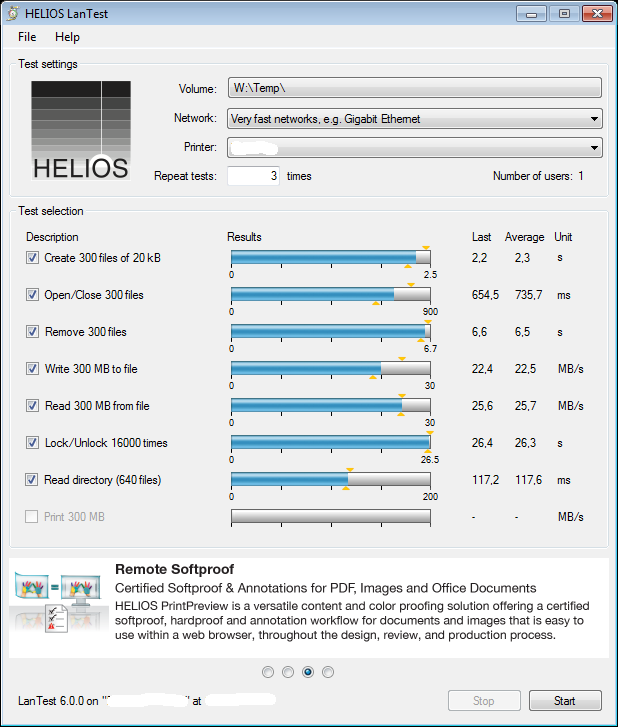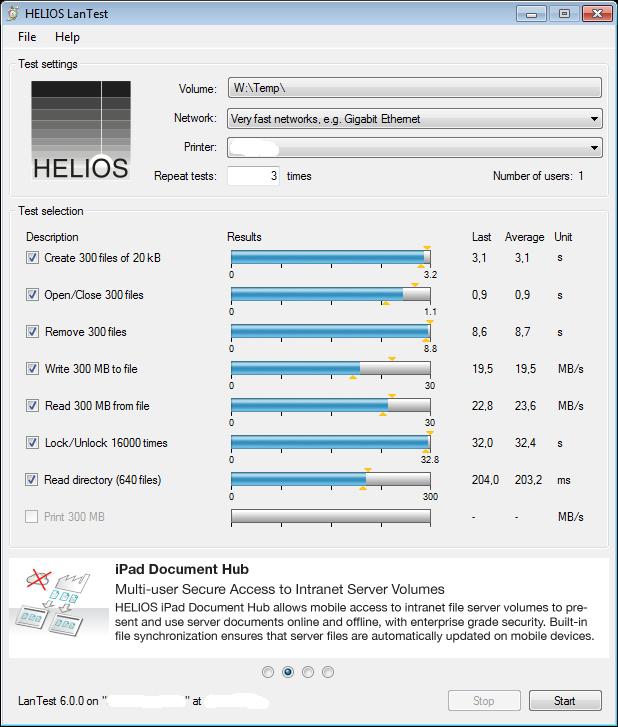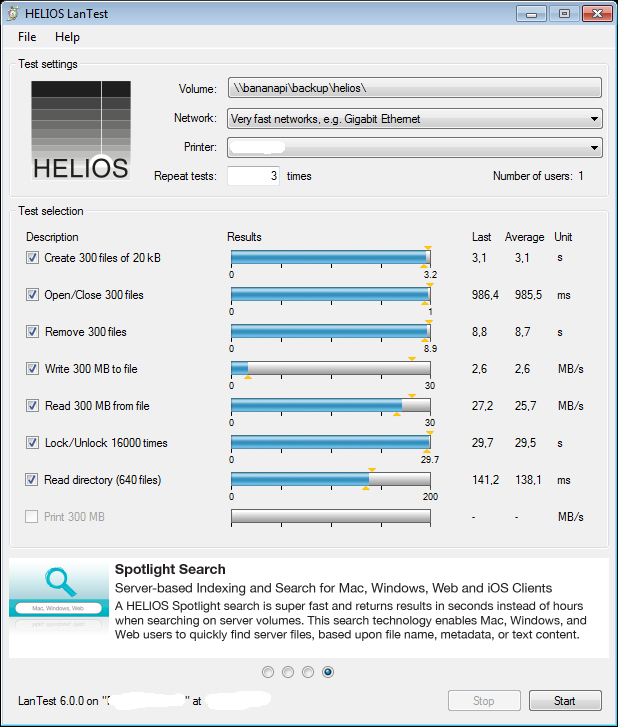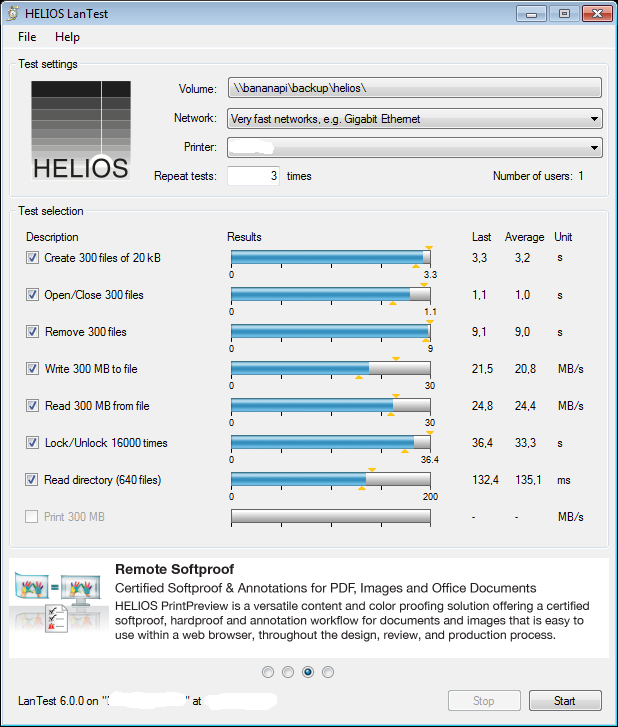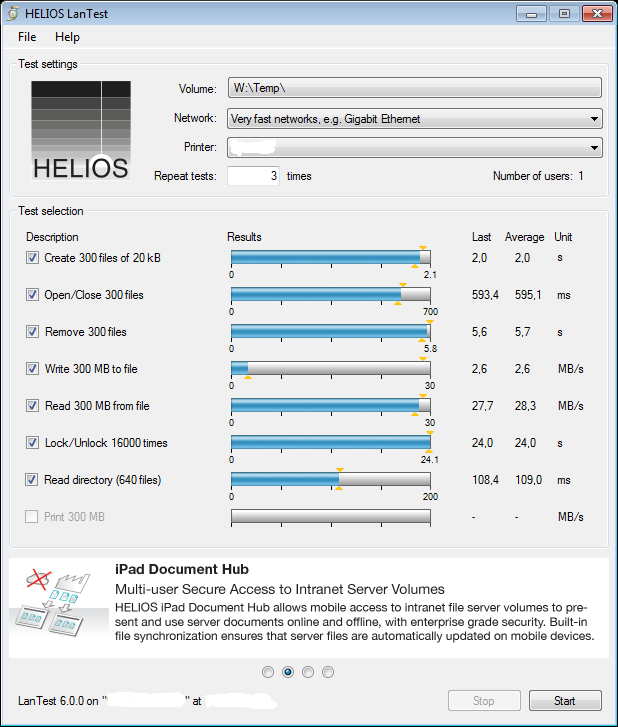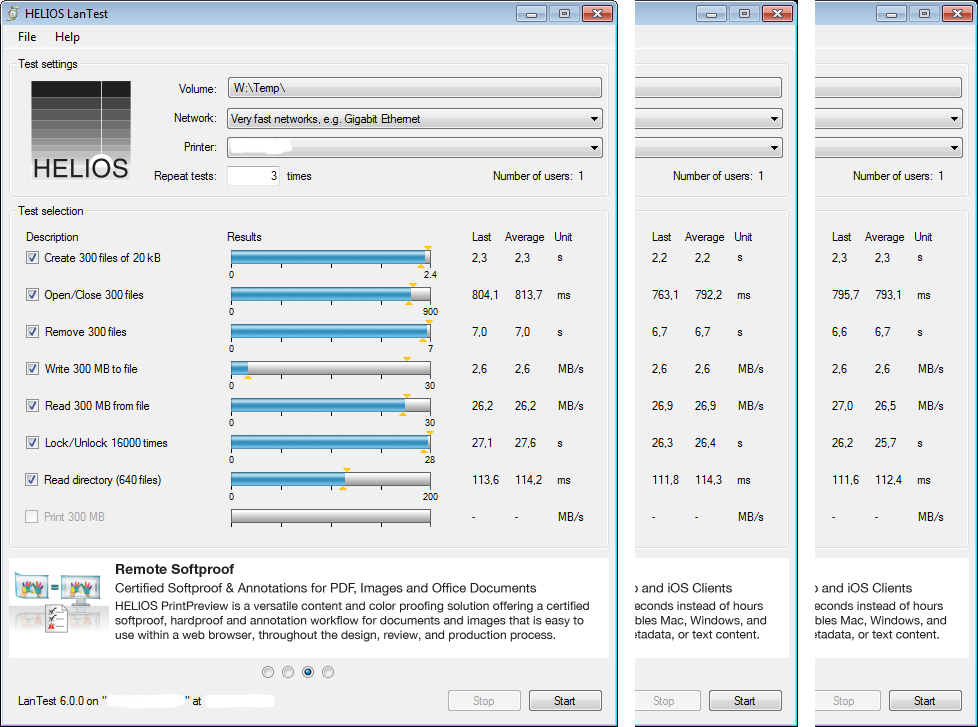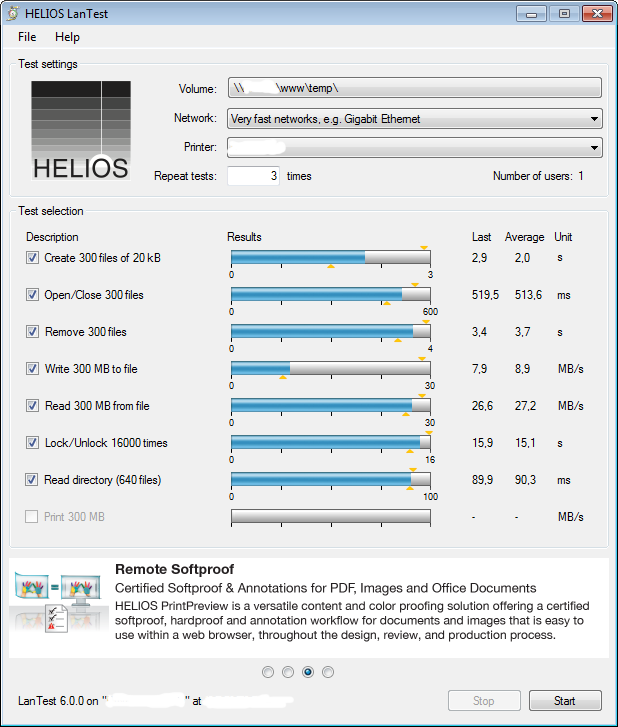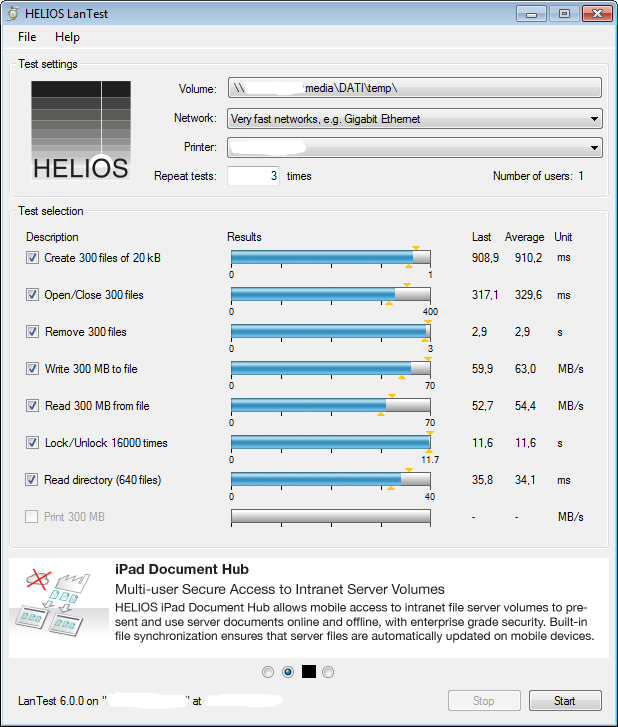
matteobp
Members-
Posts
54 -
Joined
-
Last visited
Content Type
Forums
Store
Crowdfunding
Applications
Events
Raffles
Community Map
Everything posted by matteobp
-
After several unsuccessful attempts, I decided to use the kernel configuration file of the "Ubuntu MATE 18.04 LTS" as it is, without any change, because in that distribution apcupsd works and the node /dev/usb/hiddev0 exists. Regretfully, it doesn't work on Armbian So my conclusion is that the problem is not just about the kernel, but there must be something else, and I have no idea what it might be. So I had to change and move on to the "Ubuntu Minimal 18.04 LTS" with XFCE Desktop Environment, and it works. https://wiki.odroid.com/odroid-xu4/os_images/linux/ubuntu_4.14/20180531
-
I have a similar problem with apcupsd on a Odroid XU4 board, see this topic CONFIG_USB_HIDDEV was disabled on the kernel configuration file, while CONFIG_HIDRAW is already enabled. I build the kernel with CONFIG_USB_HIDDEV enabled, but it is still not working. Any ideas? Thanks in advance. P.S. In this case https://forum.odroid.com/viewtopic.php?f=93&t=28978 enabling CONFIG_USB_HIDDEV was enough https://github.com/hardkernel/linux/commit/be592282a08a2493692448e365e46b52ac715b3f
-
Sure, I won't miss it. The problem is that enabling option CONFIG_USB_HIDDEV is not enough, something is still missing. I wanted to create a specific post in a general section because maybe someone else knows how to do it, but no problem. I'll try to compare the configuration kernel file of the other Ubuntu distribution, which I think is more similar to the Odroid XU4 Armbian configuration file than the Rock64 configuration file. Thanks
-
I tried this image, and it works. https://forum.odroid.com/viewtopic.php?f=95&t=30888 [ 7.201747] usb 3-1.2.2: Product: Smart-UPS 750 FW:651.13.I USB FW:7.3 [ 7.321793] hid-generic 0003:051D:0002.0004: hiddev97,hidraw3: USB HID v1.10 Device [American Power Conversion Smart-UPS 750 FW:651.13.I USB FW:7.3] on usb-xhci-hcd.3.auto-1.2.2/input0 All posts I found about hiddev feature are based on old kernel, and refers to CONFIG_USB_DEVICEFS that is deprecated. Can I add a new post under Development section about enabling hiddev node in the kernel, or would it be considered a duplicate post? Thanks.
-
Yes, it works. So I can use the kernel configuration of the Rock64 board, I think this one linux-rockchip-next.config But it not simple, too many differences ... :-(
-
Can you help me? How can I do it? On the Rock64 I have the ayufan Stretch image 0.6.44, kernel 4.4.132. I have to search in that kernel configuration. And I can try the Rock64 Armbian image to check if apcuspd works with it. Thanks
-
Same problem with latest Armbian Stretch. In both case I used Desktop version.
-
Hi. I have a Odroid XU4 with Ubuntu Bionic latest release (5.60), powered with this UPS: APC SmartUPS 750 VA. Apcupsd doesn't work. The problem seems related to the missing /dev/usb/hiddev0. After searching on Google, I found that apcupsd requires this feature enabled in the kernel. CONFIG_USB_HIDDEV=Y I build my own kernel enabling it, but no change. Here the output of the command # dmesg | grep Smart [ 4.125553] usb 1-1.2: Product: Smart-UPS 750 FW:651.13.I USB FW:7.3 [ 4.205622] hid-generic 0003:051D:0002.0001: hidraw0: USB HID v1.10 Device [American Power Conversion Smart-UPS 750 FW:651 On the Rock64 board it works without problem. Here the output of the command # dmesg | grep Smart [ 2.175796] usb 3-1: Product: Smart-UPS 750 FW:651.13.I USB FW:7.3 [ 3.719981] hid-generic 0003:051D:0002.0001: hiddev0,hidraw0: USB HID v1.10 Device [American Power Conversion Smart-UPS 750 FW:651.13.I USB FW:7.3] on usb-ff5d0000.usb-1/input0 As you can see, on the Rock64 board there is hiddev0 hid-generic 0003:051D:0002.0001: hiddev0,hidraw0 and /dev/usb/hiddev0 exists. In the Odroid forum, I found only this post about CONFIG_USB_HIDDEV https://forum.odroid.com/viewtopic.php?f=93&t=28978 Thanks in advance.
-
Yesterday I downloaded the latest "Debian desktop" image (it should be 5.42) linked here https://www.armbian.com/rock64/ but I'm still having the error reported below. I have never been able to run a version of Armbian on my Rock 64 (1GB version) . I'm currently using Armbian (Debian) on an Orange Pi+ without any problem. What's the problem? Can someone help me please? Welcome to minicom 2.7.1 OPTIONS: I18n Compiled on Aug 13 2017, 15:25:34. Port /dev/ttyUSB0, 20:57:55 Press CTRL-A Z for help on special keys DDR version 1.06 20170424 In LPDDR3 786MHz Bus Width=32 Col=10 Bank=8 Row=15 CS=1 Die Bus-Width=32 Size=1024MB ddrconfig:1 OUT U-Boot SPL 2017.09-g5a90a9a (Jan 12 2018 - 11:06:01) setup_ddr_param 1 booted from SPI flash Trying to boot from SPI NOTICE: BL31: v1.3(release):f947c7e NOTICE: BL31: Built : 11:06:00, Jan 12 2018 NOTICE: BL31:Rockchip release version: v1.3 U-Boot 2017.09-g5a90a9a (Jan 12 2018 - 11:06:15 +0000), Build: jenkins-linux-build-rock-64-177 Model: Pine64 Rock64 DRAM: 1022 MiB MMC: rksdmmc@ff520000: 0, rksdmmc@ff500000: 1 *** Warning - bad CRC, using default environment In: serial@ff130000 Out: serial@ff130000 Err: serial@ff130000 Model: Pine64 Rock64 misc_init_r cpuid=55524b503039303038000000000d2b11 serial=ea6ec868699cad5 Net: eth0: ethernet@ff540000 Hit any key to stop autoboot: 0 Card did not respond to voltage select! mmc_init: -95, time 9 switch to partitions #0, OK mmc1 is current device Scanning mmc 1:1... Found U-Boot script /boot/boot.scr 2960 bytes read in 27 ms (106.4 KiB/s) ## Executing script at 00500000 Boot script loaded from mmc 1 112 bytes read in 21 ms (4.9 KiB/s) "Synchronous Abort" handler, esr 0x96000210 ELR: 3ff77944 LR: 3ff75eb0 x0 : 000000003df2e9b0 x1 : 0000000044000000 x2 : 0000000000000070 x3 : 0000000000000000 x4 : 0000000000000070 x5 : 000000000000000e x6 : 0000000000000000 x7 : 0000000000000000 x8 : 0000000000000000 x9 : 0000000000000008 x10: 000000003df2e9c0 x11: 000000003df13b70 x12: 0000000000000000 x13: 0000000000000200 x14: 000000003df04bfc x15: 00000000ffffffff x16: 0000000060df18a6 x17: 0000000070a12210 x18: 000000003df0ce08 x19: 0000000000000000 x20: 0000000000000070 x21: 0000000044000000 x22: 000000003df2e9b0 x23: 000000003ffa0118 x24: 0000000000000000 x25: 0000000000000000 x26: 000000000000000a x27: 0000000000000001 x28: 0000000000000000 x29: 000000003df02b10 Resetting CPU ... DDR version 1.06 20170424 In SRX LPDDR3 786MHz Bus Width=32 Col=10 Bank=8 Row=15 CS=1 Die Bus-Width=32 Size=1024MB ddrconfig:1 OUT U-Boot SPL 2017.09-g5a90a9a (Jan 12 2018 - 11:06:01) setup_ddr_param 1 booted from SPI flash Trying to boot from SPI NOTICE: BL31: v1.3(release):f947c7e NOTICE: BL31: Built : 11:06:00, Jan 12 2018 NOTICE: BL31:Rockchip release version: v1.3 U-Boot 2017.09-g5a90a9a (Jan 12 2018 - 11:06:15 +0000), Build: jenkins-linux-build-rock-64-177 Model: Pine64 Rock64 DRAM: 1022 MiB MMC: rksdmmc@ff520000: 0, rksdmmc@ff500000: 1 *** Warning - bad CRC, using default environment In: serial@ff130000 Out: serial@ff130000 Err: serial@ff130000 Model: Pine64 Rock64 misc_init_r cpuid=55524b503039303038000000000d2b11 serial=ea6ec868699cad5 normal boot Net: eth0: ethernet@ff540000 Hit any key to stop autoboot: 0 Card did not respond to voltage select! mmc_init: -95, time 9 switch to partitions #0, OK mmc1 is current device Scanning mmc 1:1... Found U-Boot script /boot/boot.scr 2960 bytes read in 28 ms (102.5 KiB/s) ## Executing script at 00500000 Boot script loaded from mmc 1 112 bytes read in 22 ms (4.9 KiB/s) "Synchronous Abort" handler, esr 0x96000210 ELR: 3ff77944 LR: 3ff75eb0 x0 : 000000003df2e9d0 x1 : 0000000044000000 x2 : 0000000000000070 x3 : 0000000000000000 x4 : 0000000000000070 x5 : 000000000000000e x6 : 0000000000000000 x7 : 0000000000000000 x8 : 0000000000000000 x9 : 0000000000000008 x10: 000000003df2e9e0 x11: 000000003df13b70 x12: 0000000000000000 x13: 0000000000000200 x14: 000000003df04bfc x15: 00000000ffffffff x16: 0000000060df18a6 x17: 0000000070a12210 x18: 000000003df0ce08 x19: 0000000000000000 x20: 0000000000000070 x21: 0000000044000000 x22: 000000003df2e9d0 x23: 000000003ffa0118 x24: 0000000000000000 x25: 0000000000000000 x26: 000000000000000a x27: 0000000000000001 x28: 0000000000000000 x29: 000000003df02b10 Resetting CPU ...
-
No. With the latest version of 0.6.x (I tried with 0.6.13) it works. So both ayufan 0.5.15 e 0.6.1x works, at least the debian jessie and debian stretch images. But I was never able to boot the armbian. Here you can find the output log taken via console. Thanks
-
No one can help me? Why does the armbian image work for some people and doesn't work for other people like me? Thanks.
-
Hi. The "usb to serial ttl bridge adapter" arrived yesterday, and I tried the 20/11/2017 armbian Rock64 image. This is the output of the console and it loops on " x0 : ... x2 : ... ... x28: ... Resetting CPU ... " I hope that this can help. Thanks.
-
I think in my case the problem is not the writing: 2 writes with Etcher on Linux and 2 writes with Etcher on Windows with verification on. Moreover, when I write the ayufan image v. 0.5.15 the board works, while I have the same problem with 0.6.x . I think there is something missing/wrong with my board. Is there something like "a firmware" to be updated? AFAIK, the image contains everything I need. Thanks
-
No change. I used Etcher on Windows to write the SD card: it doesn't start; all leds on, no hdmi output. I think I have to wait for the "usb to serial ttl bridge adapter" (already ordered) and check via serial console what is happening.
-
Ok, perfect. I'll try and let you know. Thanks very much Matteo
-
How can I write an image on SD card with Linux? For my current Armbian on Orange Pi Plus I have always used dd, or dc3dd if I want to see the progress. For rock64, other tools are suggested, like Etcher and PINE64 Installer (based on Etcher). I tried dd, Etcher and PINE64 Installer, without success. By the way, Etcher and PINE64 Installer have an options for verifying. Can you suggest me another way to burn the rock64 armbian image on SD Card? If needed, I have also Windows system. Thanks Matteo
-
Hi. I've download the image built on 21/11, but it doesn't still work. I checked also the sha256 code to be sure that the image is not corrupted. Very strange. Did you burn the SD with Etcher? I think I have to try with Serial Console, but I have no usb to serial ttl bridge adapter. I want to buy a "CH340g usb to serial ttl bridge adapter". In this post https://forum.pine64.org/showthread.php?tid=5029 the connection is done with a Pinebook, but I think I can use any PC/notebook, isn't it. Thanks for support. Matteo
-
Hi. I'm currently using the armbian image (Debian Jessie) on an Orange Pi Plus board as NAS, and I bought the Rock64 one because it should have better performance in copying to and from NAS (the current average for the Orange Pi Plus is about 28-30MB/s), although so far the performance are lower than Orange Pi Plus, but it is another story. I want to use the Armbian also on Rock64, and the only available image is the server one (https://dl.armbian.com/rock64/Ubuntu_xenial_default_nightly.7z), but I was not able to use it I have already created this post Can you help me? Sorry for duplication post. Thanks in advance. Matteo
-
Hi all. I have a Rock64 board with 1GB RAM. I downloaded this image https://dl.armbian.com/rock64/Ubuntu_xenial_default_nightly.7z and I wrote it on the SD card (Samsung EVO 16GB) using both Etcher and dd command. But when I power the board, all 3 leds light up and remains on, nothing else happens. I have the same behaviour with the 0.6.0 stretch-minimal image downloaded here https://github.com/ayufan-rock64/linux-build/releases The only images that works are the 0.5.10 downloaded here https://github.com/ayufan-rock64/linux-build/releases/tag/0.5.10 What's wrong? I can exclude problems with power supply (I bought the one they suggested on their site, 5V 3A) and with SD card because I have no problem with 0.5.10 image. I tested both xenial-mate and stretch-minimal (with the XFCE4 desktop environment installed later) images without problems. Thanks in advance. Matteo
-
Removed. There are other two packages that seems to refers to mainline. This is the output of dpkg -l | grep next ii linux-firmware-image-next-sunxi 5.26 armhf Linux kernel firmware, version 4.9.10-sunxi ii linux-jessie-root-next-bananapi 5.25 armhf Armbian tweaks for jessie on bananapi (next branch) Are they ok? If I remove "linux-firmware-image-next-sunxi", can I install "linux-firmware-image-sun7i_5.27_armhf.deb"? I had error during previous installation of this package. Thanks
-
Perfect, it worked. Now the average Helios LanTest result are these ones. Legacy kernel without changes in /etc/sysctl.conf and /etc/sysfs.conf (CPU frequency set to 1104 Mhz) Legacy kernel with the changes reported in the first post in /etc/sysctl.conf and /etc/sysfs.conf (CPU frequency set to 1104 Mhz) Considering that I started with an image based on the mainline kernel, now that I went back to legacy kernel installing these 3 debs files linux-headers-sun7i_5.27_armhf.deb linux-image-sun7i_5.27_armhf.deb linux-u-boot-bananapipro_5.27_armhf.deb is there something else I have to do? I'm asking this because after apt update I have this list of upgradable packages. linux-dtb-next-sunxi/jessie 5.26 armhf [upgradable from: 5.26] linux-headers-next-sunxi/jessie 5.26 armhf [upgradable from: 5.26] linux-image-next-sunxi/jessie 5.26 armhf [upgradable from: 5.26] tzdata/stable-updates 2017a-0+deb8u1 all [upgradable from: 2016j-0+deb8u1] I dont' want to imagine what happens with an apt upgrade Thanks very much for the support.
-
This is the output of the command dpkg -i *.deb Selecting previously unselected package linux-firmware-image-sun7i. (Reading database ... 142813 files and directories currently installed.) Preparing to unpack linux-firmware-image-sun7i_5.27_armhf.deb ... Unpacking linux-firmware-image-sun7i (5.27) ... dpkg: error processing archive linux-firmware-image-sun7i_5.27_armhf.deb (--install): trying to overwrite '/lib/firmware/ap6210/nvram_ap6210.txt', which is also in package armbian-firmware 5.25 dpkg-deb: error: subprocess paste was killed by signal (Broken pipe) Selecting previously unselected package linux-headers-sun7i. Preparing to unpack linux-headers-sun7i_5.27_armhf.deb ... Unpacking linux-headers-sun7i (5.27) ... Selecting previously unselected package linux-image-sun7i. Preparing to unpack linux-image-sun7i_5.27_armhf.deb ... Unpacking linux-image-sun7i (5.27) ... Selecting previously unselected package linux-u-boot-bananapipro-default. dpkg: regarding linux-u-boot-bananapipro_5.27_armhf.deb containing linux-u-boot-bananapipro-default: linux-u-boot-bananapipro-next conflicts with armbian-u-boot linux-u-boot-bananapipro-default provides armbian-u-boot and is to be installed. dpkg: error processing archive linux-u-boot-bananapipro_5.27_armhf.deb (--install): conflicting packages - not installing linux-u-boot-bananapipro-default Setting up linux-headers-sun7i (5.27) ... Compiling headers - please wait ... Setting up linux-image-sun7i (5.27) ... update-initramfs: Generating /boot/initrd.img-3.4.113-sun7i update-initramfs: Converting to u-boot format Errors were encountered while processing: linux-firmware-image-sun7i_5.27_armhf.deb linux-u-boot-bananapipro_5.27_armhf.deb Thanks for support Matteo
-
Hi. I did a last try. I downloaded the latest Banana Pi+ Server images "Legacy 3.4.113" and "Mainline 4.9.7", burnt them onto SD card, installed only samba and samba-common, and ran the Helios Lan Test. Here the resutl with "Legacy 3.4.113" and here the result with "Mainline 4.9.7" I didn't apply any changes, so the problem is with Mainline kernel itself. Am I the only one with this problem? Please help me. Thanks Matteo P.S. I tried this wget -q -O - http://upgrade.armbian.com | bash but after that the BananaPi didn't boot anymore. I had to restore the image taken before this try. Then I compiled the legacy kernel by myself (on a VirtualBox VM with ubuntu 16.04 server) and installed all these 4 debs files linux-firmware-image-sun7i_5.27_armhf.deb linux-headers-sun7i_5.27_armhf.deb linux-image-sun7i_5.27_armhf.deb linux-u-boot-bananapipro_5.27_armhf.deb with dpkg -i *.deb but I had an error during installation and also in this case the BananaPi didn't boot anymore and I had to restore the image. Which is the correct way to switch to legacy kernel in my situation?
-
Hi. Thanks for the tips. I removed all changes from /etc/sysctl.conf and /etc/sysfs.conf, and I set the governor = performance. This is the output of the command sysctl -a | grep mem net.core.optmem_max = 10240 net.core.rmem_default = 163840 net.core.rmem_max = 163840 net.core.wmem_default = 163840 net.core.wmem_max = 163840 net.ipv4.igmp_max_memberships = 20 net.ipv4.tcp_mem = 8829 11772 17658 net.ipv4.tcp_rmem = 4096 87380 6027744 net.ipv4.tcp_wmem = 4096 16384 4194304 net.ipv4.udp_mem = 17658 23545 35316 net.ipv4.udp_rmem_min = 4096 net.ipv4.udp_wmem_min = 4096 sysctl: reading key "net.ipv6.conf.all.stable_secret" sysctl: reading key "net.ipv6.conf.bond0.stable_secret" sysctl: reading key "net.ipv6.conf.default.stable_secret" sysctl: reading key "net.ipv6.conf.eth0.stable_secret" sysctl: reading key "net.ipv6.conf.lo.stable_secret" vm.highmem_is_dirtyable = 0 vm.lowmem_reserve_ratio = 32 32 vm.overcommit_memory = 0 They should be default values. The CPU frequency is set to 1104 Mhz. The result is almost the same. Here the result of the command iozone -e -I -a -s 100M -r 4k -r 16k -r 512k -r 1024k -r 16384k -i 0 -i 1 -i 2 on the SATA HD random random kB reclen write rewrite read reread read write 102400 4 14421 16996 33874 33599 1112 2104 102400 16 25076 25871 89751 89404 4133 7312 102400 512 35430 34143 92995 106661 51305 36084 102400 1024 32965 35947 95504 110381 61425 36641 102400 16384 33365 34797 107493 100003 118127 35999 and here the result of the iperf, using BananaPI and SheevaPlug as client/server. BananaPI as server iperf -s -P 0 -i 1 -p 5001 -f m ------------------------------------------------------------ Server listening on TCP port 5001 TCP window size: 0.08 MByte (default) ------------------------------------------------------------ [ 4] local x.x.x.14 port 5001 connected with x.x.x.13 port 37964 [ ID] Interval Transfer Bandwidth [ 4] 0.0- 1.0 sec 92.3 MBytes 775 Mbits/sec [ 4] 1.0- 2.0 sec 97.8 MBytes 821 Mbits/sec [ 4] 2.0- 3.0 sec 96.9 MBytes 813 Mbits/sec [ 4] 3.0- 4.0 sec 101 MBytes 850 Mbits/sec [ 4] 4.0- 5.0 sec 100 MBytes 840 Mbits/sec [ 4] 5.0- 6.0 sec 103 MBytes 860 Mbits/sec [ 4] 6.0- 7.0 sec 101 MBytes 843 Mbits/sec [ 4] 7.0- 8.0 sec 101 MBytes 849 Mbits/sec [ 4] 8.0- 9.0 sec 100 MBytes 841 Mbits/sec [ 4] 9.0-10.0 sec 100 MBytes 842 Mbits/sec [ 4] 0.0-10.0 sec 994 MBytes 833 Mbits/sec SheevaPlug as client iperf -c x.x.x.14 -P 1 -i 1 -p 5001 -f m -t 10 -T 1 ------------------------------------------------------------ Client connecting to x.x.x.14, TCP port 5001 TCP window size: 0.02 MByte (default) ------------------------------------------------------------ [ 3] local x.x.x.13 port 37964 connected with x.x.x.14 port 5001 [ ID] Interval Transfer Bandwidth [ 3] 0.0- 1.0 sec 92.8 MBytes 778 Mbits/sec [ 3] 1.0- 2.0 sec 97.8 MBytes 820 Mbits/sec [ 3] 2.0- 3.0 sec 96.6 MBytes 811 Mbits/sec [ 3] 3.0- 4.0 sec 102 MBytes 851 Mbits/sec [ 3] 4.0- 5.0 sec 100 MBytes 839 Mbits/sec [ 3] 5.0- 6.0 sec 103 MBytes 861 Mbits/sec [ 3] 6.0- 7.0 sec 101 MBytes 844 Mbits/sec [ 3] 7.0- 8.0 sec 101 MBytes 849 Mbits/sec [ 3] 8.0- 9.0 sec 100 MBytes 842 Mbits/sec [ 3] 9.0-10.0 sec 100 MBytes 840 Mbits/sec [ 3] 0.0-10.0 sec 994 MBytes 833 Mbits/sec SheevaPlug as server ------------------------------------------------------------ Server listening on TCP port 5001 TCP window size: 0.08 MByte (default) ------------------------------------------------------------ [ 4] local x.x.x.13 port 5001 connected with x.x.x.14 port 52854 [ ID] Interval Transfer Bandwidth [ 4] 0.0- 1.0 sec 69.3 MBytes 581 Mbits/sec [ 4] 1.0- 2.0 sec 73.4 MBytes 616 Mbits/sec [ 4] 2.0- 3.0 sec 75.2 MBytes 631 Mbits/sec [ 4] 3.0- 4.0 sec 75.8 MBytes 635 Mbits/sec [ 4] 4.0- 5.0 sec 75.6 MBytes 634 Mbits/sec [ 4] 5.0- 6.0 sec 73.6 MBytes 618 Mbits/sec [ 4] 6.0- 7.0 sec 71.0 MBytes 595 Mbits/sec [ 4] 7.0- 8.0 sec 65.4 MBytes 548 Mbits/sec [ 4] 8.0- 9.0 sec 72.2 MBytes 606 Mbits/sec [ 4] 9.0-10.0 sec 71.6 MBytes 601 Mbits/sec [ 4] 0.0-10.0 sec 723 MBytes 606 Mbits/sec BananaPI as client ------------------------------------------------------------ Client connecting to x.x.x.13, TCP port 5001 TCP window size: 0.04 MByte (default) ------------------------------------------------------------ [ 3] local x.x.x.14 port 52854 connected with x.x.x.13 port 5001 [ ID] Interval Transfer Bandwidth [ 3] 0.0- 1.0 sec 69.4 MBytes 582 Mbits/sec [ 3] 1.0- 2.0 sec 73.5 MBytes 617 Mbits/sec [ 3] 2.0- 3.0 sec 75.2 MBytes 631 Mbits/sec [ 3] 3.0- 4.0 sec 75.8 MBytes 635 Mbits/sec [ 3] 4.0- 5.0 sec 75.5 MBytes 633 Mbits/sec [ 3] 5.0- 6.0 sec 73.8 MBytes 619 Mbits/sec [ 3] 6.0- 7.0 sec 70.8 MBytes 593 Mbits/sec [ 3] 7.0- 8.0 sec 65.5 MBytes 549 Mbits/sec [ 3] 8.0- 9.0 sec 72.2 MBytes 606 Mbits/sec [ 3] 9.0-10.0 sec 71.5 MBytes 600 Mbits/sec [ 3] 0.0-10.0 sec 723 MBytes 607 Mbits/sec Seeing the result of iperf, I think the problem is related to samba, but I have no idea about the problem. Thanks for support. Matteo
-
Hi all. I have a problem with network performance. I have a Banana Pi M1+ with Debian Jessie 8.7, kernel 4.9.10-sunxi. I have already read these threads http://forum.lemaker.org/forum.php?mod=viewthread&tid=5802&highlight=performance http://forum.lemaker.org/forum.php?mod=viewthread&tid=12167 and based on them, I applied some changes. I added these settings is my /etc/sysctl.conf net.core.rmem_max = 8738000 net.core.wmem_max = 6553600 net.ipv4.tcp_rmem = 8192 873800 8738000 net.ipv4.tcp_wmem = 4096 655360 6553600 vm.min_free_kbytes = 65536 net.ipv4.tcp_window_scaling = 1 net.ipv4.tcp_timestamps = 1 net.ipv4.tcp_sack = 1 net.ipv4.tcp_no_metrics_save = 1 and these ones in my /etc/sysfs.conf devices/system/cpu/cpufreq/ondemand/up_threshold = 25 devices/system/cpu/cpufreq/ondemand/sampling_down_factor = 10 devices/system/cpu/cpufreq/ondemand/io_is_busy = 1 This is my /etc/cpufrequtils ENABLE=true MIN_SPEED=528000 MAX_SPEED=1104000 GOVERNOR=ondemand I executed a first test with Helios Lan Test. Then I tried to apply these settings echo 1 > /proc/irq/$(cat /proc/interrupts | grep ahci-sunxi | cut -f 1 -d ":" | tr -d " ")/smp_affinity echo 2 > /proc/irq/$(cat /proc/interrupts | grep eth0 | cut -f 1 -d ":" | tr -d " ")/smp_affinity echo 2 > /sys/class/net/eth0/queues/rx-0/rps_cpus echo 2 > /sys/class/net/eth0/queues/tx-0/xps_cpus and execute a second test. Finally I tried to modify the samba configuration adding these setting in the [global] section restarting samba after changes: socket options = TCP_NODELAY IPTOS_LOWDELAY SO_RCVBUF=65536 SO_SNDBUF=65536 use sendfile = yes aio read size = 16384 aio write size = 16384 deadtime = 30 but the final result doesn't change. This image shows the result of three different tests, corresponding to the different settings. Consider that the shared folder W:\temp is on a SATA HDD 3.5" (WD RE4 1TB) connected to the SATA port of the Banana PI. I repeated the same test on the old SheevaPlug (with Gigabit ethernet), but in this case the shared folder is a SD Card folder. Here the result. Finally I did the same test connecting to another PC with Ubuntu 16.04 LTS, and this is the result. Why I have those very poor write values? Thanks Matteo

